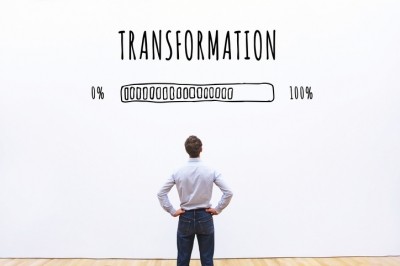Can blockchain technology help mitigate EU pork sector’s environmental impacts?

The two entities said the alliance will result in automated farm-level data capture and environmental output calculation being combined via blockchain technology. They argue that the initiative will provide valuable insights on how environmental impacts can be mitigated across the livestock sector.
“Combining individual feed production and farm data with up-to-date and regionalized data on the environmental impacts of feedstuffs - on the basis of life-cycle inventories - allows us to holistically asses the environmental footprint of livestock production,” Dr Nina Challand, team lead sustainability evaluations, BASF, told us.
The companies want to enable consumers make informed choices about the meat they eat via an on-pack unique scannable code, providing information both on the product’s provenance and its environmental footprint.
The German company’s calculation tool, AgBalance Livestock, is designed to evaluate the life cycle impact of all inputs and outputs of animal protein production, while arc-net uses blockchain technology to provide transparency in the agri-food industry.
That Northern Irish firm’s platform tags and identifies animals at birth using DNA sampling and RFID technology; it tracks the animal across the entire supply chain, with its movements and interactions verified by supply chain members.
The preliminary phase of the pilot project will focus on collecting data for evaluating sustainability measures within a controlled setting at the farm level in various countries in Europe.
“We are focusing on European pork production in our pilot project,” said Dr Challand.
In terms of when the results from the pilot phase will be published, she added: “At this stage, it’s still too early to determine when the project will be completed. However, we will report on the results once they are available.”
What is blockchain technology anyway?
Harry Smit, senior analyst, farming and farm inputs at RaboResearch Food & Agribusiness, in an interview with this publication in December last year explained that the blockchain is about linking digital information about operations from all participants in a supply chain.
The technology is based on decentralized systems; it is like a shared ledger, and information cannot be manipulated once it is input by the relevant party. “Of course, the information has to be correct to begin with."
The shared nature of the blockchain technology means that, once data is entered, all those involved can view it. Crucial for realizing the benefits of blockchain is the interface between the physical and digital world, he said.
There are two prerequisites to a blockchain becoming successful, according to Smit. Firstly, processes within companies and between companies have to become digitalized and standardized, and secondly, a broad participation of stakeholders along the value chain is required. Otherwise, the value of the blockchain is lost.
The development of sensor technology and its greater use at farming and crop cultivation level will increase the digitalization of primary agriculture and make it more blockchain friendly, he said.
As blockchain technology further develops, there will be more data available in the supply chain, said Smit.
“That will likely generate new services such as data analytics or predictive modelling.”
Blockchain agri-commodity deal
In January, we reported on how Louis Dreyfus Company (LDC) had realized an industry first – a blockchain based soy deal.
At the start of the year LDC announced that it along with Shandong Bohi Industry (Bohi), ING, Societe Generale and ABN Amro had completed the first full agricultural commodity transaction using a blockchain platform.
The soy deal involved user participation on a blockchain-based platform - Easy Trading Connect (ETC) - by teams from LDC as the seller and Bohi as the buyer, with banks issuing and confirming the letter of credit. Russell Marine Group and Blue Water Shipping issued all required certificates, while they said the US Department of Agriculture (USDA) provided insights on how to include phyto-sanitary certificates in the process.
Due to the blockchain prototype used, the time spent on processing documents and data was reduced fivefold, said the participants.
The transaction relied on the use of a digitalized sales contract, letter of credit and certificates and automatic data matching. The deal mirrored the paper-based process but demonstrated significant efficiency improvements for all the parties in the chain, claimed the parties.











